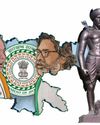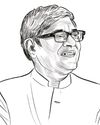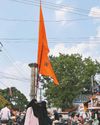Resolving Doklam needs steady hands. Will Xi Jinping emulate the Mao of ’62, or show mature diplomacy?

It is always difficult to second guess a large, and reputedly inscrutable, country like China, especially at a time of crisis. Whether standoff between India and China on the Doklam plateau—at DokoLa, on the trijunc tion of borders of India, Bhutan and China—where rival soldiers are stationed in close proximity, can be called a fullblown crisis or one in the making would be a matter of debate. But, as the episode enters its second month with no signs to suggest that either of the two sides is willing to yield ground and take the first step to restore status quo ante, people in the subcontinent and beyond have begun to wonder if a second war between the two Asian neighbours is in the offing. the recent livefire exercise by units of the Chinese army in the Tibet Autonomous Region has spread a whiff of cordite over the crisis, intensifying the war talk.
On the face of it, both sides maintain that they are engaged with each other and the top priority is to resolve the standoff through negotiations. But the relentless, stentorian rhetoric emanating out of China—its government-run media and the foreign ministry—almost on a daily basis has also not failed to remind everyone that an armed conflict remains an option to break the logjam at Doklam.
“Much of China’s harsh rhetoric is a reflection perhaps of some surprise on their part that India actually intervened on behalf of a third country,” former foreign secretary Shyam Saran said in a recent interview. He went on to say that China did not anticipate Indian troops entering the Doklam plateau, a territory of Bhutan. “This is the first real India-China standoff in a third country. Perhaps, China did not anticipate such a reaction from India,” added Saran.
Denne historien er fra July 31, 2017-utgaven av Outlook.
Start din 7-dagers gratis prøveperiode på Magzter GOLD for å få tilgang til tusenvis av utvalgte premiumhistorier og 9000+ magasiner og aviser.
Allerede abonnent ? Logg på
Denne historien er fra July 31, 2017-utgaven av Outlook.
Start din 7-dagers gratis prøveperiode på Magzter GOLD for å få tilgang til tusenvis av utvalgte premiumhistorier og 9000+ magasiner og aviser.
Allerede abonnent? Logg på

Trump's White House 'Waapsi'
Donald Trump's victory in the US presidential election may very well mean an end to democracy in the near future

IMT Ghaziabad hosted its Annual Convocation Ceremony for the Class of 2024
Shri Suresh Narayanan, Chairman Managing Director of Nestlé India Limited, congratulated and motivated graduates at IMT Ghaziabad's Convocation 2024

Identity and 'Infiltrators'
The Jharkhand Assembly election has emerged as a high-stakes political contest, with the battle for power intensifying between key players in the state.

Beyond Deadlines
Bibek Debroy could engage with even those who were not aligned with his politics or economics

Portraying Absence
Exhibits at a group art show in Kolkata examine existence in the absence

Of Rivers, Jungles and Mountains
In Adivasi poetry, everything breathes, everything is alive and nothing is inferior to humans

Hemant Versus Himanta
Himanta Biswa Sarma brings his hate bandwagon to Jharkhand to rattle Hemant Soren’s tribal identity politics

A Smouldering Wasteland
As Jharkhand goes to the polls, people living in and around Jharia coalfield have just one request for the administration—a life free from smoke, fear and danger for their children

Search for a Narrative
By demanding a separate Sarna Code for the tribals, Hemant Soren has offered the larger issue of tribal identity before the voters

The Historic Bonhomie
While the BJP Is trying to invoke the trope of Bangladeshi infiltrators”, the ground reality paints a different picture pertaining to the historical significance of Muslim-Adivasi camaraderie